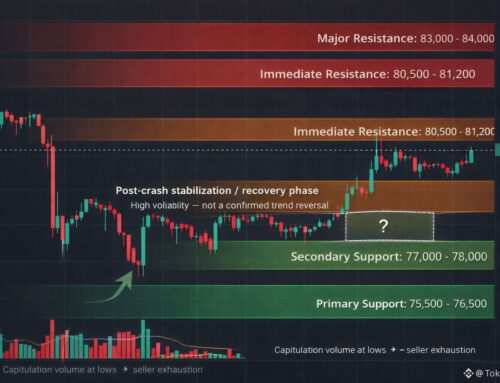Alabama, Minnesota Advance Bitcoin Reserve Plans With Companion Bills
April 2, 2025
Bitcoin could soon find a place on state balance sheets, with Alabama and Minnesota both pressing ahead with legislative frameworks for state Bitcoin reserves.
In Minnesota, House File 2946, also called the Minnesota Bitcoin Act, introduced by Rep. B. Olson (R-MN) on Tuesday, would allow the state to invest in Bitcoin directly. Its Senate counterpart, SF 2661, was introduced earlier in March.
The identical bills seek to authorize the State Board of Investment to allocate public funds into Bitcoin, marking a direct acknowledgment of the digital asset’s long-term financial potential.
Meanwhile in Alabama, Senate Bill 283, filed this week by Sen. April Weaver (R-AL)is a companion to House Bill 482, introduced earlier in March.
Though neither bill explicitly names Bitcoin, the legislation limits eligibility to digital assets with a market capitalization of at least $750 billion.
Currently, only Bitcoin meets that threshold, effectively making it the sole qualifying asset under the proposed framework.
If the proposals pass, they would take effect on October 1, 2025 in Alabama and January 1, 2026 in Minnesota.
Both states are embracing a legislative tactic commonly used to fast-track approval: introducing identical bills in both chambers.
HF 2946/SF 2661 would allow the state to not only invest in Bitcoin but also accept it for tax payments and government transactions.
The bill amends more than a dozen statutes to incorporate crypto, including tax codes, pension plans, and investment rules.
The Alabama legislation also outlines digital assets must be held directly by the treasurer, by a qualified custodian, or via exchange-traded products, and cannot exceed 10% of any state fund.
The proposals follow a wider trend of state-level efforts across the U.S. to explore the world’s largest crypto as a strategic reserve asset.
While some states, including Wyoming, Montana, and Pennsylvania, have recently paused or withdrawn their Bitcoin reserve plans, the momentum remains strong elsewhere.
South Carolina recently introduced a bill to allow its treasurer to allocate up to 10% of certain state funds into digital assets—starting with Bitcoin.
Oklahoma’s House Bill 1203, which allows for crypto asset reserves, passed overwhelmingly and is pending Senate review. Texas passed Senate Bill 21 to establish a Bitcoin strategic reserve and is awaiting gubernatorial approval.
Arizona and Utah have introduced their own frameworks, although Utah’s reserve language was dropped during revisions.
Bitcoin reserve tracker Bitcoin Law’s data shows that 47 state-level Bitcoin reserve bills have been introduced in 26 states, 41 of which are currently live.
Sentiment around the passing of a state Bitcoin reserve proposal appears to have turned negative, however. Users of MYRIAD, the decentralized prediction market launched by Decrypt’s parent company DASTAN, overwhelmingly predicted that no state would implement such a reserve, in a market that closed at the end of March.
Daily Debrief Newsletter
Start every day with the top news stories right now, plus original features, a podcast, videos and more.
Search
RECENT PRESS RELEASES
Ethereum Faces Market Lows As Digitap Emerges Strong
SWI Editorial Staff2026-01-31T18:02:22-08:00January 31, 2026|
Renewable Energy Investment Expansions
SWI Editorial Staff2026-01-31T17:01:51-08:00January 31, 2026|
Renewable Energy Investment Expansions
SWI Editorial Staff2026-01-31T17:01:11-08:00January 31, 2026|
37 Affordable Products I Bet You’ll Use At Least Once A Week Until The End Of Time
SWI Editorial Staff2026-01-31T16:59:52-08:00January 31, 2026|
37 Affordable Products I Bet You’ll Use At Least Once A Week Until The End Of Time
SWI Editorial Staff2026-01-31T16:59:19-08:00January 31, 2026|
37 Affordable Products I Bet You’ll Use At Least Once A Week Until The End Of Time
SWI Editorial Staff2026-01-31T16:59:11-08:00January 31, 2026|
Related Post




